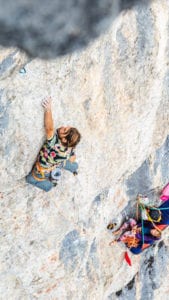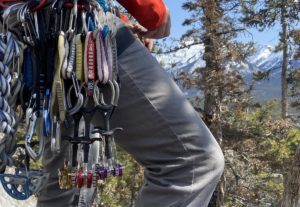Nico Favresse, Sébastien Berthe and a Carbon-Free Alpine Trilogy
The duo completed the 5.14 routes using only bicycles as transportation
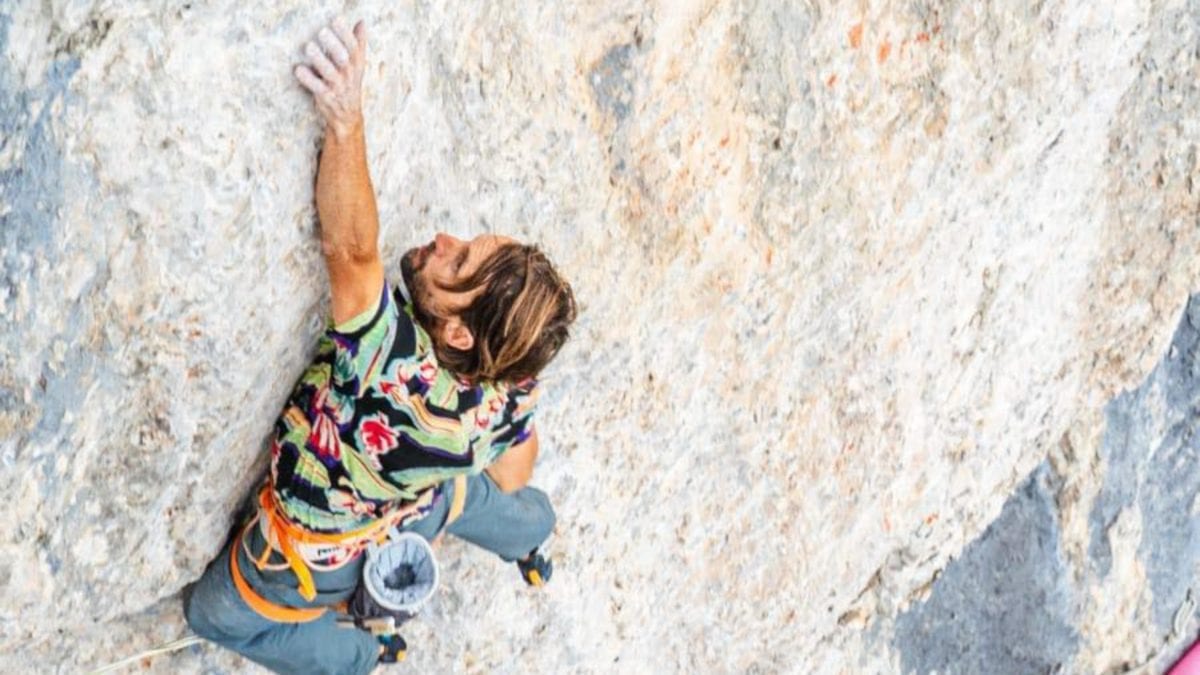 Photo by: Damien Largeron
Photo by: Damien Largeron
On Thursday, Belgian climbers Nico Favresse and Sébastien Berthe completed an impressively quick repeat of Europe’s famous “Alpine Trilogy”. The collection of 8b+ (5.14a) multi pitches, all established by legendary climbers in 1994, have become a principal milestone in the history of hard alpine sport climbing. Unlike most climbers who undertake the Trilogy as a multi-year project, the unassailable duo are the first to complete it in a single season — and have set an important standard in how future suitors may approach this celebrated climbing goal.
Favresse and Berthe finished the Trilogy in a mere two weeks, sending each route in a single day. Most impressively, perhaps, was their low carbon approach. They wanted a substantial goal without the usual travel emissions and chose bicycles as their mode of transportation to reach the Austrian, Swiss and German routes. The idea stemmed from an annoyance of depending on carbon-emitting vehicles to go rock climbing. Planes, choppers and trucks are quick ways to see the world, “But we don’t always need to travel around the world to have an adventure,” Favresse said. Alongside photographer Damien Largeron, the trio biked an average of 100km per day but Favresse said they always had plenty of energy to climb hard. And climb hard they did.
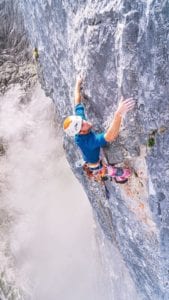
The Alpine Trilogy consists of Des Kaisers neue Kleider 5.14a, nine pitches, Silbergeier 5.14a, six pitches and End of Silence 5.14a, 11 pitches. While these routes are predominantly bolt-protected, they are infamous for significantly runout climbing and are stacked with multiple 5.13s and 5.14s. Favresse said Des Kaisers neue Kleider was the biggest challenge for him. After a night of heavy rain that stretched into the morning, expectations of success were low while hiking in to the dripping wall. Berthe convinced him they should at least climb the first wet 5.10 pitch and decide how they felt afterwards. Enamoured by the climbing, and the lure of above, they pushed on, “We would keep going until something would stop us,” Favresse said. The pair persevered through the soaking wet 5.14a and began the final hard pitch by headlamp. Favresse said the tenuous climbing tossed them off the sharp limestone time after time. Berthe was adamant in his success, telling Favresse, “I am not coming down without sending this pitch.” After 10 tries Favresse clipped the chains and topped out at 4am, ending an exhausting night.
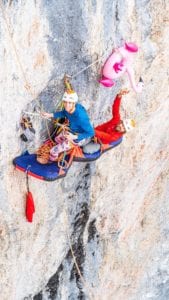
Favresse is perhaps best known in the big wall free climbing world for his musical antics in the mountains with fellow Belgian Sean Villanueva O’Driscoll. He said this type of fun-loving partnership is very important for challenging objectives. Though Favresse had never climbed with Berthe before the Trilogy, he said they had a naturally complimentary partnership, “He is a little stronger than me and I’m a bit more of a technical climber. It was a good match for us,” Favresse said.
Favresse also admired Berthe’s strong ethical values. Berthe had pitched the idea of being the first to complete the Trilogy without carbon-emitting vehicles, wanting to influence how future climbers would approach their goals. Favresse agreed — he said there is an understated value in visiting beautiful places via human power. Driving his car would have been too easy, too predictable. Without the bicycle an important element of this adventure would have been lost, while only more air pollution would be gained. “I really want to do more of this,” Favresse said. “I think it’s time to change how we approach our climbing for the environment’s sake.”
